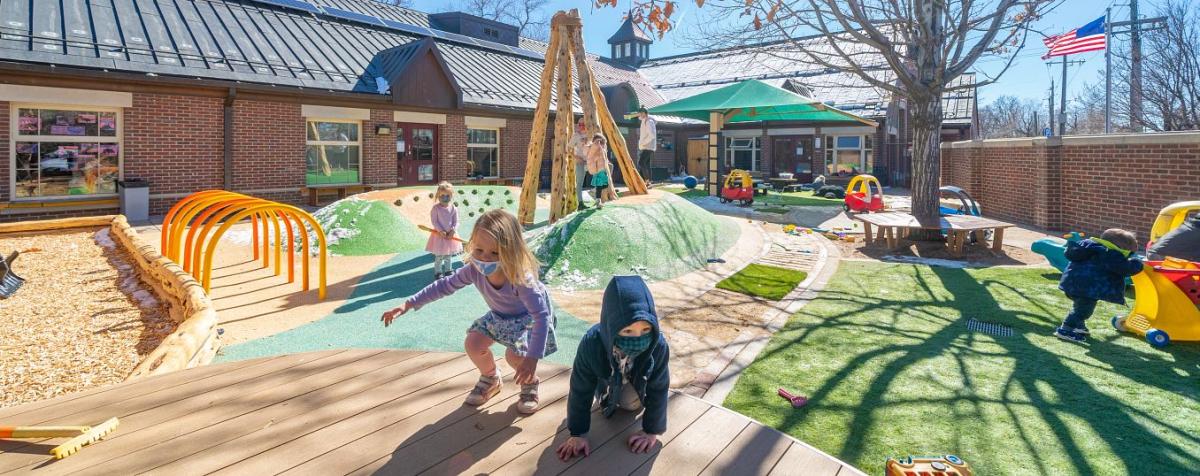Primary Care
Fisher has a strong Infant/Toddler program, prioritizing building deep, trusting relationships between the child, the teacher and children’s families. Low ratios and fewer classroom transitions help foster safety, trust, and the time needed for teachers to really focus on relationship building. This model provides the strong foundation necessary on which to scaffold all social-emotional development, particularly the more advanced skills learned in the preschool years.
PITC
For our youngest learners, aged 0-3, we incorporate Program for Infant Toddler Care (PITC); a framework with which teachers structure the care routines and relationship building for the children in their care. PITC recommends 6 essential policies: Primary Care, Small Groups, Continuity of Care, Individualized Care, Culturally Responsive Care, and Inclusive Care.
Primary Care
Children are assigned a primary care provider. This teacher guides each child’s learning in their primary care group within the context of building trust within primary care routines
Small groups
Our center is equipped to offer many opportunities for small group learning within the classroom, in our wider building and on DU’s campus. Small groups are an ideal way to encourage peer relationship building and to foster emotional competency in young children.
Continuity of Care
Children remain in the same classroom for one full school year, regardless of age or ability. They transition with many of their peers to a new classroom. When possible, teachers may follow a group to the new classroom, maintaining continuity of care with the child’s peers and with one or more of their caregivers.
Individualized Care
Teachers in our infant/toddler age groups use individualized lesson plans to tailor learning specific to individual children. These learning opportunities are developed to enhance care routines like eating, diapering, sleeping and during play.
Culturally Responsive Care
Fisher values our relationships with each family of the children in our care. Teachers work to learn important cultural values of families and discern ways these values can be incorporated into the caregiving relationship, learning opportunities and classroom environment.
Inclusive Care
Teachers in our infant/toddler program collaborate with families to identify each child’s individual learning goals and provide a learning environment that supports their child’s developmental needs within their family's cultural norms. Through the consultative model of the FIT team, teachers are supported to offer opportunities for continual growth, learning and social development with children’s age peers.



